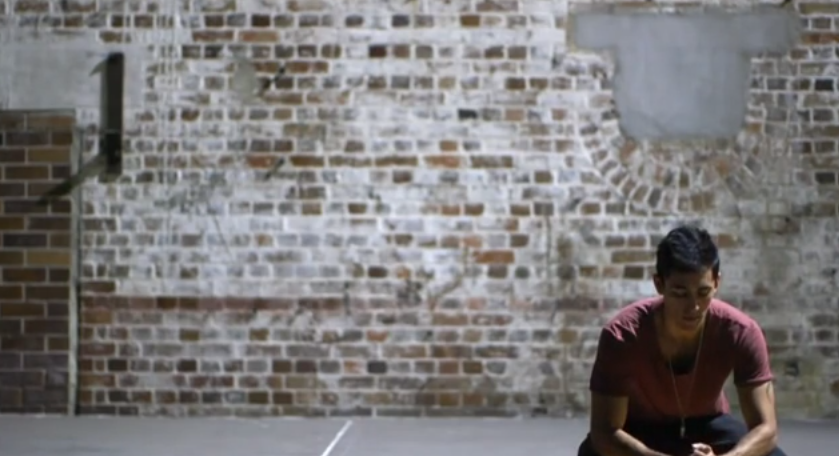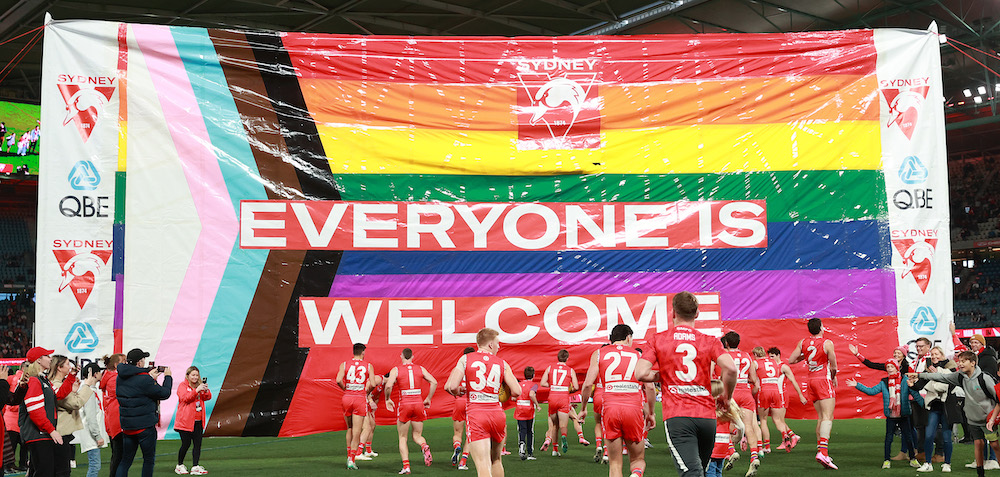
A mission to break down HIV stigma

FILM director Mikey Trotter did not hesitate at the opportunity to be the creative mastermind behind a new series of online videos that tackle HIV stigma — simply because it’s an issue that’s close to his heart.
“I have many friends who are HIV positive. I have spent too many hours sitting opposite friends in cafes hearing stories of their HIV disclosure and then rejection,” he said.
“Also, friends calling me up saying ‘I’ve just found out I’m positive’ and then helping them as their worlds come crashing down around them, or situations such as hearing people talk in nightclubs where they say things like ‘don’t sleep with him he’s positive’.”
Trotter said these sorts of stories ended up in the final edits of his three videos, which were launched by HIV Foundation Queensland (HIVFQ) a few weeks ago.
In the series, which HIVFQ made in conjunction with MediaCom, looks at the human side of HIV through interviews with a range of people affected by it.
Trotter — who has been creating and directing films for over 10 years and worked behind the scenes in reality TV shows like Real Housewives of Melbourne to creating a gritty documentary on mental health and addiction in the UK — was approached by MediaCom to create the videos because of his past work with for the Sydney Gay and Lesbian Mardi Gras and gay community in general.
He quickly agreed to take part, and before he knew it he spent weeks sourcing and interviewing a variety of people living with HIV either because they have it, or because someone they love does. In the videos, they bare their hearts and souls, out of which have come three different and powerful films that each deal themes of reducing the stigma around HIV, encouraging and supporting more HIV testing, and encouraging prevention.
“Luckily, advances in medication mean HIV is now manageable. But problems with stigma are very much alive,” Trotter said.
“HIV is a huge part of our lives still and the social issues that go with it. I am all too often frustrated by the stories I see and the behaviours I witness on apps like Grindr where people say things like ‘only HIV neg’ or ‘be clean’.
“A lot of that frustration was what went into making these documentaries. I wanted to use my experience at telling engaging stories to tell the stories of HIV people in a way that would be engaging to a mainstream audience, so that people who might not normally watch a HIV doc would and then hopefully learn something.”
Three decades after HIV and AIDS came to Australia, health campaigns have changed and while there have been incredible developments with medication and healthcare, especially in the past year or so, there is still a long way to go in the battle with HIV.
Trotter said people living with HIV still faced a constant battle with stigma, narrow mindedness and HIV phobia, and the ignorance and assumptions about who is at risk is explored in his videos.
“It really bothers me that lots of people still don’t know the difference between HIV and AIDS,” Trotter said.
“Particularly for gay men who are sexually active, not knowing the basics like this is shocking. People need to know the issues so they can protect themselves accordingly.
“But I think the biggest misunderstanding around HIV comes with people choosing not to sleep with a HIV positive person. I do respect this decision, but people are missing a huge point. HIV positive men on medication have an undetectable viral load — this is the amount of HIV in their blood. This undetectable load means that HIV positive men on medication are virtually not infectious. This added to using a condom means having sex with HIV positive men is safe.”
Trotter added it was those who didn’t know they had HIV who were more risky, and stressed the need to get tested regularly, the latter of which is a theme in the series.
The notions of disclosure and consequence are also broached in the video series, with personal stories from interviews at what it was like to disclose their HIV status and how something so intimate can be tough. It also looks at their experiences of living with HIV, and how it is lifelong, time-consuming, costly and also takes its toll on you emotionally and physically.
“The number one thing we wanted to do with this campaign was start conversations,” Trotter said.
“Or people might have conversations with friends in pubs when they hear them say something like ‘don’t sleep with him, he’s positive’. They might feel they can say ‘no, that’s not okay to say that’.
“I also want men and women to start having conversation before they have sex and not feel that HIV is something they can’t talk about.”
Trotter said the biggest challenge in the creation of his series was finding a variety people who were brave enough to share their stories, whether they live with HIV or knew someone who does.
“Many people don’t want to talk about HIV. Many HIV positive people don’t want to admit they are HIV positive due to stigma,” Trotter said.
“It meant this was always going to be a very hard project to cast as we wanted HIV positive people to share their stories. We hit the phones and we hit the streets. Talking to people was going to be the only way to cast this project.
“We spoke to almost every single gay organisation in Queensland on the phones. We spoke to and sent leaflets to all medical centres where HIV positive people attend. We also went to and handed out leaflets at gay bars, clubs and sex on premises venues.”
Trotter added, with a smile: “It’s not many jobs where I can legitimately say I went to a gay saunas looking for men and still could call it work.”
The director also contacted Queensland Positive Speaking Bureau and posted notices on his social media networks and blog, in which he has a large following.
“We were also inundated with offers of help from my Instagram posts,” Trotter recalled.
“It was very interesting to see how many people responded to this call out and how much people wanted to see the upcoming documentaries. Very early on it felt like there was a great need for this sort of documentary that would give people more information about a subject they were perhaps a bit nervous to ask about, where they could digest it in the comfort and privacy of their laptop.”
With each story told, both Trotter and HIV Foundation of Queensland hoped to make younger generations who did not experience the AIDS epidemic of the 80s to understand that HIV is still real, while also informing them of the necessity to test regularly understand all the options of prevention and how one can and can’t be at risk.
And for Trotter personally, the experience has been very rewarding.
“Now that the films are live, the number of emails I am getting from around the world is blowing me away,” he said.
“HIV positive and HIV negative men and women are contacting me to say the films have had a huge impact on their lives. One guy publicly outed himself on Facebook as HIV positive as he felt so empowered by Allen’s story in one of the films.
“I think also the films are resonating with many HIV positive people who can relate to the hardships in the films as well informing HIV negative people who have been too scared to ask questions in the past.”
Trotter, who has been living in Australia for five years, said he was about to move back to London. However, he said his passion of telling human stories to break down HIV stigma was still strong and he already eyeing the American film industry.
“I would really like to do another HIV film somewhere else in the world and perhaps address a different set of social issues that are presented in another community,” he said.
Watch all of Mikey Trotter’s videos for HIVFQ here:









